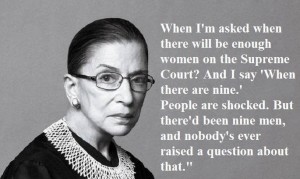 While sitting in the lobby of one of the conference hotels during our discipline’s major conference in November, I was joined by a group of post-docs and very early career scholars who were (loudly) discussing their career plans in this tight market. What I caught of their conversation can be summed up as such: We all currently have (or hope to have) tenure track jobs at “teaching schools,” but as soon as we can, we’ll get out of there and move on to the “real” jobs at elite institutions where our research will be valued.
While sitting in the lobby of one of the conference hotels during our discipline’s major conference in November, I was joined by a group of post-docs and very early career scholars who were (loudly) discussing their career plans in this tight market. What I caught of their conversation can be summed up as such: We all currently have (or hope to have) tenure track jobs at “teaching schools,” but as soon as we can, we’ll get out of there and move on to the “real” jobs at elite institutions where our research will be valued.
This is a popular sentiment, albeit fantasy for most (in light of the current market). Yet I think it deserves attention, for I believe it to be responsible for some very subtle sorts of power plays that many of us may not recognize as such. For those of you not familiar with the lingo, a “teaching school” is a college or university where greater emphasis is placed on one’s teaching competencies and comparatively less on one’s research, which means that faculty at such schools tend to have larger teaching loads and, typically, less paid time to produce scholarship. The opposite is the case at more elite institutions, where (on the whole) faculty have opportunities to teach less, specifically to give them time to produce the aforementioned research. Continue reading “On the Market, Playing the Game: On Status and Elitism in Academia”

